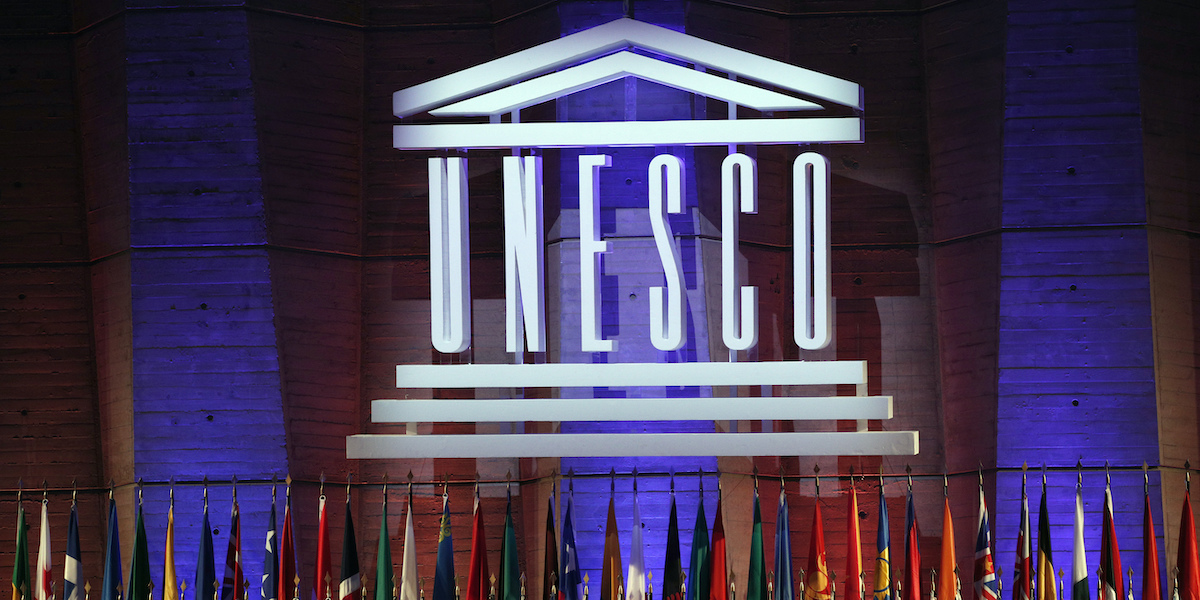The United States government sent a letter to UNESCO, the UN agency that deals with “promoting peace among nations” through science and culture, in which he says he wants to rejoin the organization: the United States had officially left at the end of 2018, during the presidency of Donald Trump, at the height of years of conflict especially around issues of international politics, and in particular related to UNESCO’s attitude towards Israel, judged excessively hostile.
In a statement published on Monday, UNESCO announced the letter and said that the return of the United States to the organization should take place as early as July, ie from next month. In addition to returning as a member state, the United States will return to finance UNESCO after many years: they had stopped doing it since 2011, during the presidency of Barack Obama, while remaining in the organization, after the vote with which Palestine had been admitted as a member state. The communiqué generally says that the United States has already presented a “detailed financing plan”: for the moment no further information has been given, but it is known that UNESCO badly needs US funds, despite the state of its finances has improved in recent years.
The press release attributes most of the reasons that would have prompted the United States to decide to return to the new management of the organization started by the general director Audrey Azoulay, the former French culture minister who took office in 2017, in conjunction with the US release announcement. According to UNESCO, the United States would have appreciated how Azoulay in recent years has “reduced political tensions” and allowed the organization to “fully address contemporary challenges”.
In reality, among the main reasons that prompted the United States to this decision, there is also the fear that their absence is allowing an excessive strengthening of China’s influence on the organization, whose decisions have repercussions on culture and science international level: China, which in the meantime has become the main financier of UNESCO, could for example play a crucial role in defining the standards that artificial intelligence and technological training must have in the coming years, perhaps even by directing investments in by virtue of its economic weight on the organisation’s accounts. It is a well-acknowledged fear that even US officials have spoken openly about in recent months: in March, Undersecretary of State John Bass said that his absence from UNESCO was compromising the ability of the United States to promote its “vision of a world free”. “If we really want to compete with China in the digital age,” Bass said, “we can no longer afford to be absent.”
In 2011, with Palestine joining UNESCO, the Obama administration enforced a 1990 law that barred the United States from contributing to any United Nations agency that accepted Palestine as a member state. Since then, the United States has accumulated a total of undisbursed loans to UNESCO of over 600 million dollars (about 560 million euros), which it could now instead decide to repay: in December 2022 the incumbent administration of Joe Biden has approved a law that will allow the organization to be financed anyway, to which until 2011 the United States gave 80 million dollars a year (just over 74 million euros).
In 2017 they decided to get out of it altogether both by criticizing its economic management and by arguing that UNESCO continued to demonstrate an “anti-Israel bias”. With the United States, Israel too had left UNESCO: in that year the organization had declared the old city of Hebron, in the West Bank, a World Heritage Site in Palestine. For Israel, that decision denied the Jewish people’s ties to the city, which according to tradition is home to the tombs of the biblical patriarchs Abraham, Isaac and Jacob. The previous year, UNESCO had adopted a resolution that effectively minimized the relationship between Jews and the “Square of the Mosques”, the main complex in Jerusalem which is considered a sacred place by both Jews and Muslims.
Already in 1984, the United States had withdrawn from the organization following the decision of President Ronald Reagan, who in times of the Cold War had accused UNESCO of being corrupt and siding with the Soviet Union. The United States then rejoined the agency in 2002 under the presidency of George W. Bush, according to whom most anti-Western prejudices had by then disappeared.
